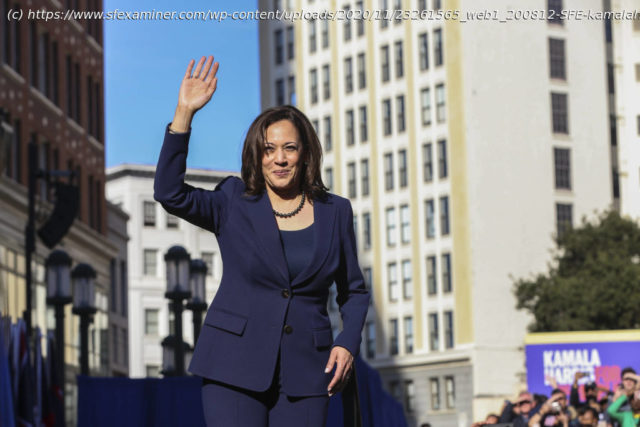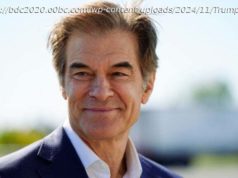By Melanie Mason
By Melanie Mason Los Angeles Times With her election to the second-highest post in the nation, Kamala Harris has secured her place in history as a first — several times over. The first woman to be vice president. First Black person. First Asian American. With each boundary broken, Harris, California’s junior senator, established herself as a new face of American political power, one reflective of a broad cross-section of the population that for much of our history did not see itself in the nation’s leaders. “My 9-year-old will believe for the rest of her life that there is no ceiling for Black girls,” said Lateefah Simon, a Bay Area-based civil rights advocate whom Harris has mentored for nearly 20 years. “Her best friend, who is a first-generation Latina… will see the vice president of the United States holding up the experiences of her mother, of this young girl’s mother, of the migrant experience.” Harris appears acutely aware of the eyes upon her; she spoke to the symbolic weight her vice presidency would carry in a “60 Minutes” interview last month. “It helps change the perception of who can do what,” she said, “because that is still part of the battle after all.” America has reimagined what leadership looks like before, most profoundly with the election 12 years ago of Barack Obama, the country’s first Black president. But what followed — Hillary Clinton’s inability to shatter the gender barrier, the fraught racial relations of the Trump era — made the prospect of electing a woman, much less a woman of color, to national office an exceedingly tall order. “In a sense, it is the first time in American history that the election of the vice president would be more historic than the election of the president,” said Joel Goldstein, law professor emeritus at St. Louis University and an expert on the vice presidency. “It crashes a ceiling.” There was remarkably little build-up to the milestone. Instead, it was a bit lost in the drawn-out vote count, the last flourish in an over-the-top election season. For Harris,56, her win marks a new height in her turbocharged trajectory from local to state to national politics. It represents a recovery from the setback of her ill-fated presidential primary campaign and positions her as a standard-bearer of the Democratic Party, second only to Joe Biden, her governing partner. The oldest daughter of a breast cancer researcher from India and an economist from Jamaica, Harris was born in Oakland and raised in Berkeley at a time of racial and societal upheaval. Her parents, who divorced when she was 7, met at a civil rights rally and Harris was in the second class of students participating in a busing program to integrate Berkeley schools. Her childhood was a cultural pastiche — a soundtrack of Aretha Franklin belting gospel music and her mother, Shyamala Gopalan, singing Carnatic music, a classical style of southern India. Among her enduring childhood influences were her maternal grandfather, an Indian civil servant who taught her to play poker on her visits to Chennai, and her first-grade teacher, a Black woman named Frances Wilson, who attended her law school graduation. After spending her middle and high school years in Montreal, Harris attended Howard University, a historically Black institution in Washington, and then got her law degree at the University of California, Hastings College of the Law in San Francisco.
Домой
United States
USA — Science Kamala Harris makes history many times over as vice president-elect — The...






